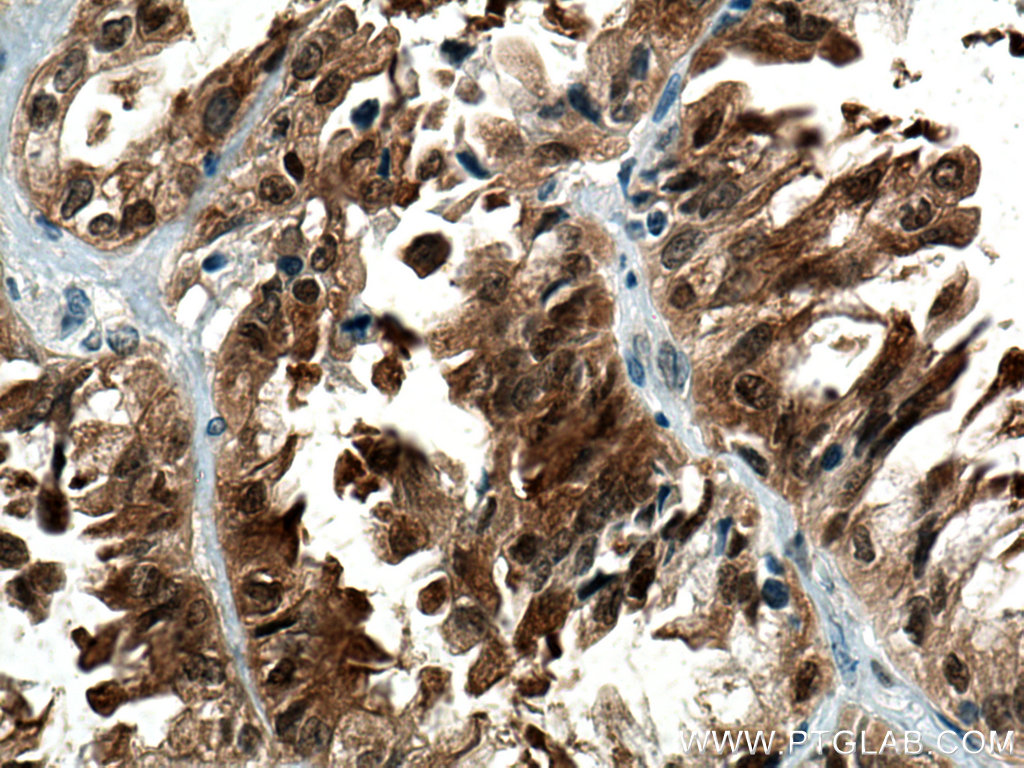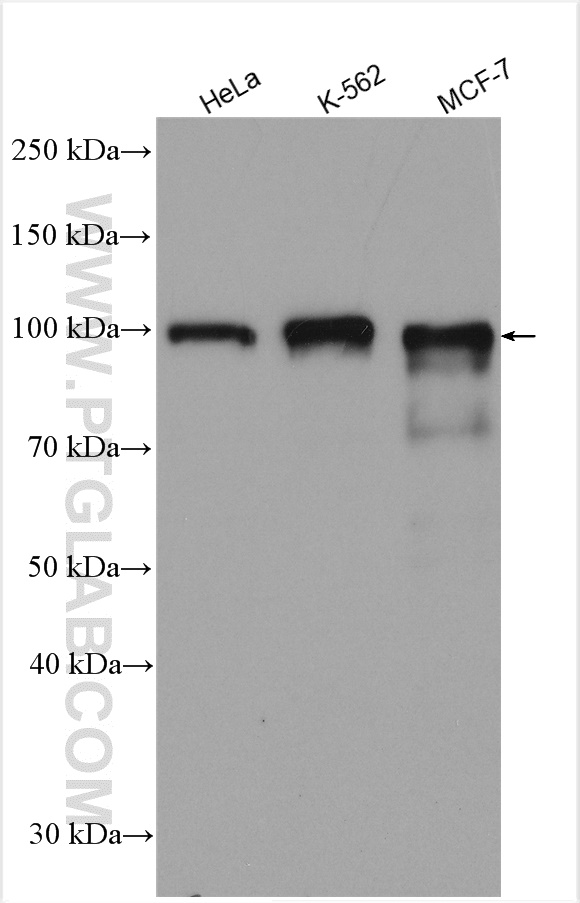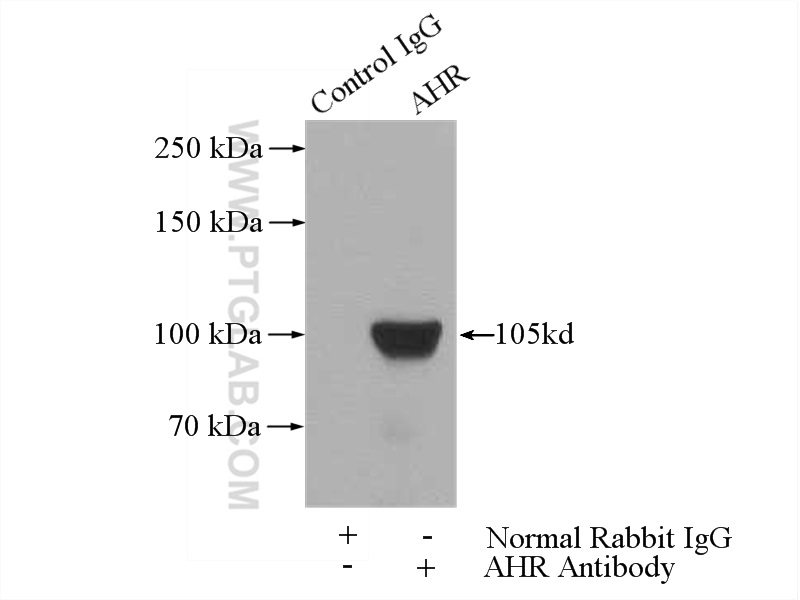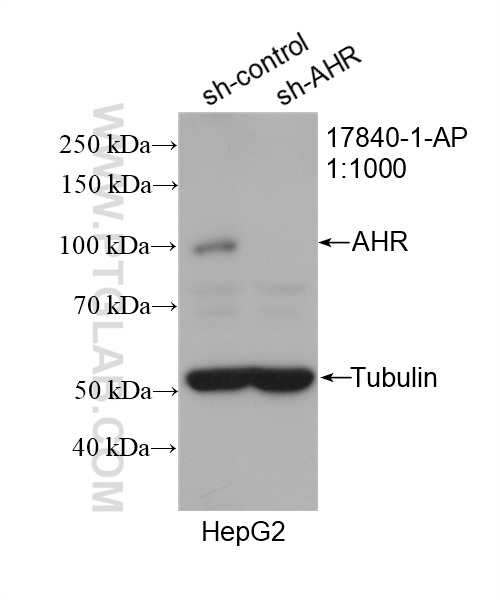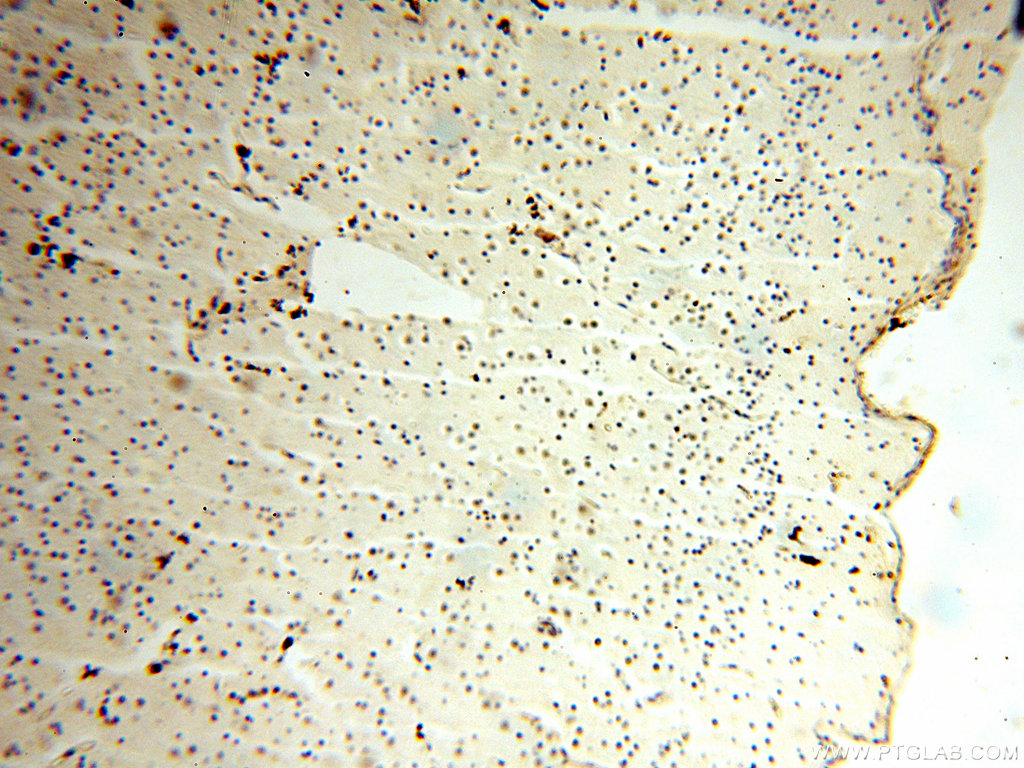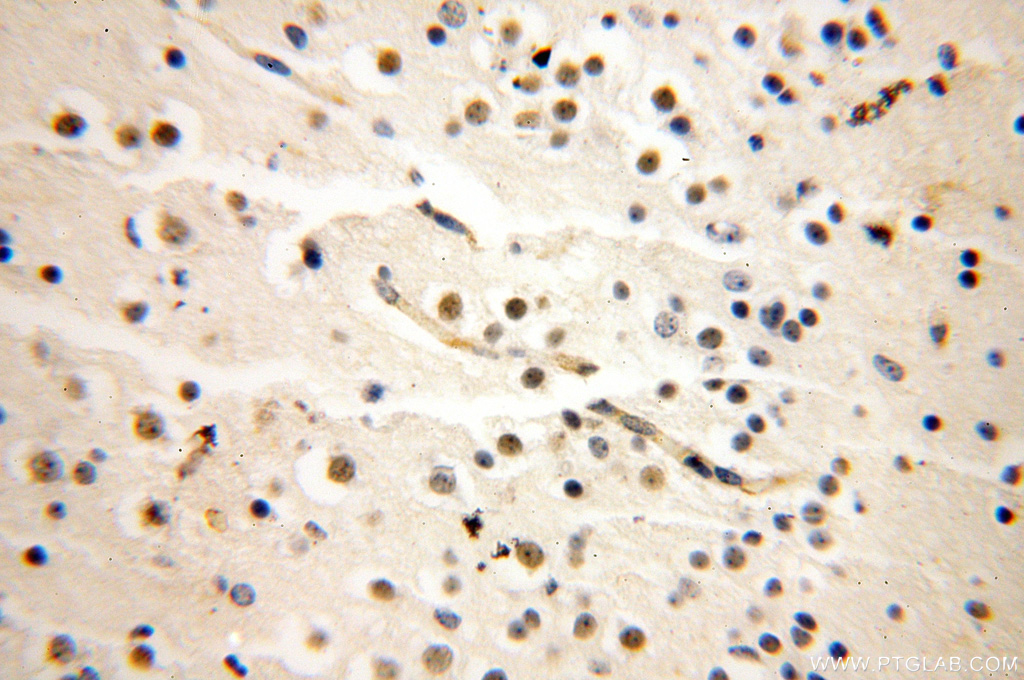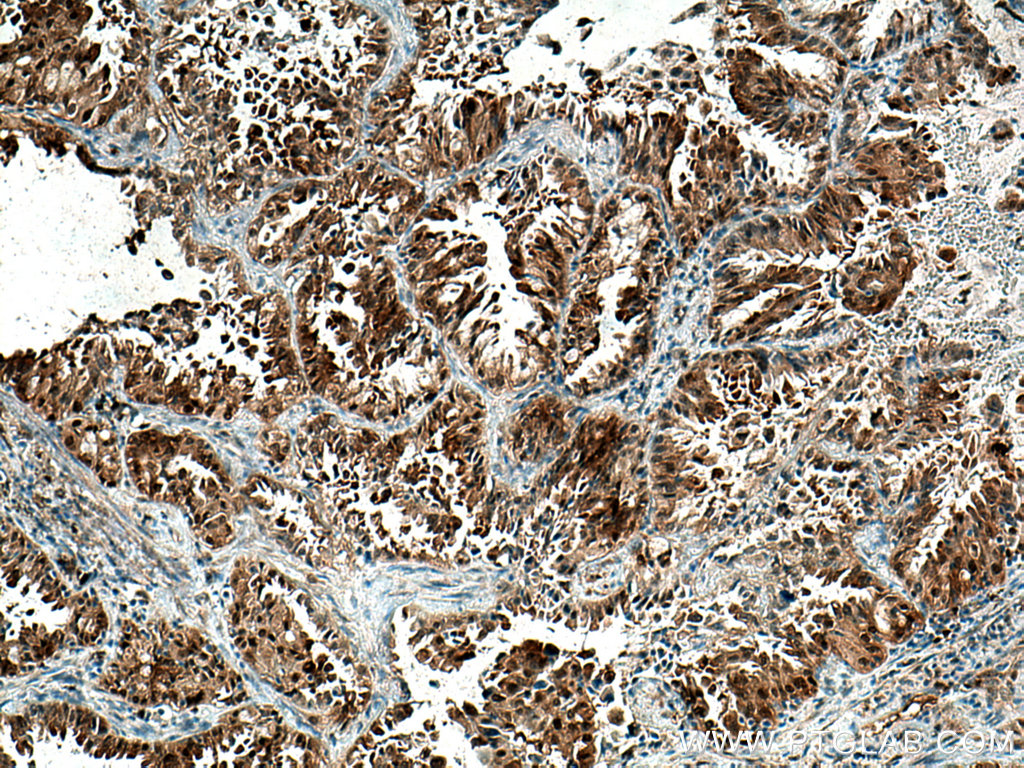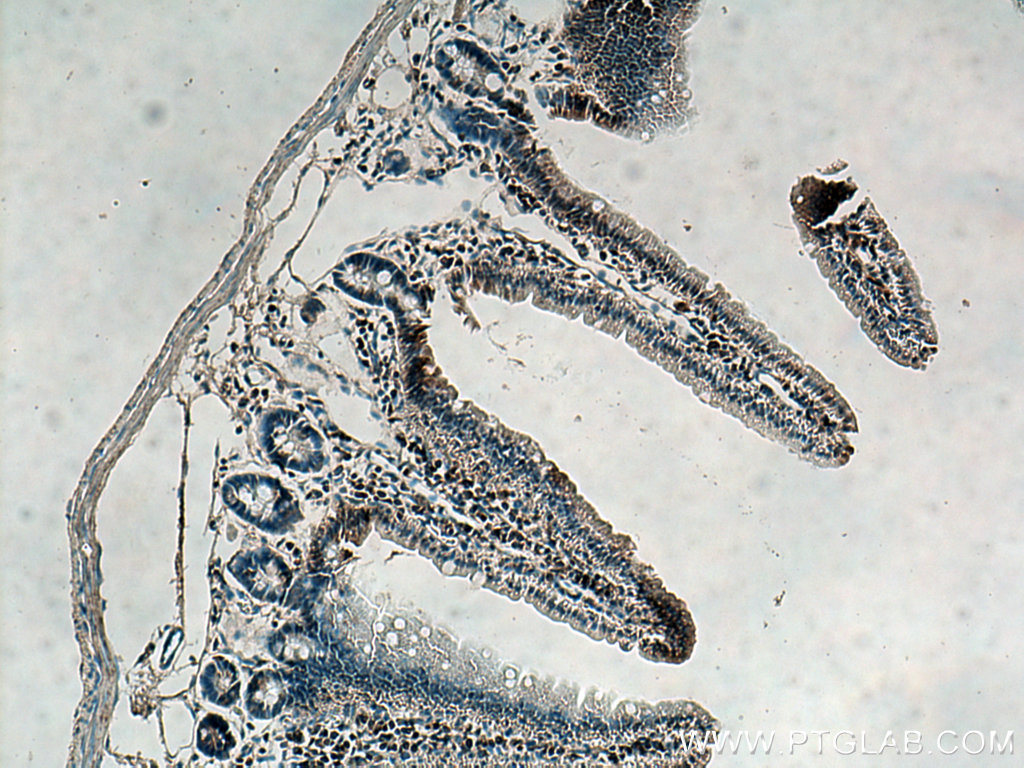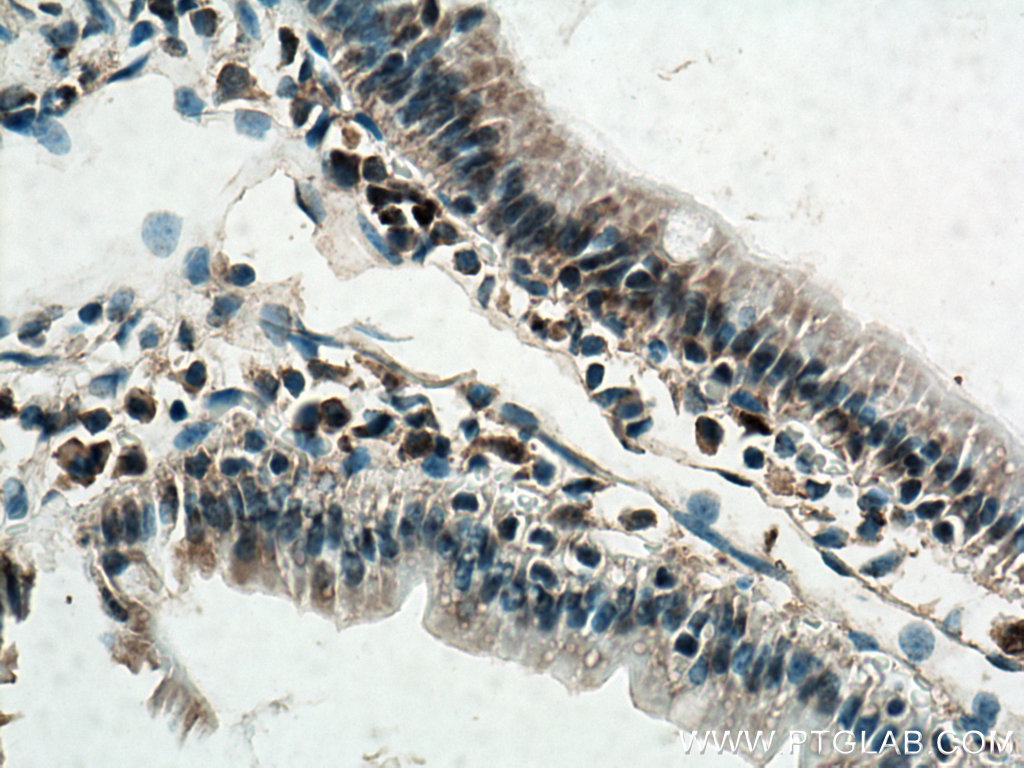验证数据展示
经过测试的应用
| Positive WB detected in | HeLa cells, HepG2 cells, K-562 cells, MCF-7 cells |
| Positive IP detected in | PC-3 cells |
| Positive IHC detected in | human lung cancer tissue, mouse small intestine tissue, human brain tissue Note: suggested antigen retrieval with TE buffer pH 9.0; (*) Alternatively, antigen retrieval may be performed with citrate buffer pH 6.0 |
推荐稀释比
| 应用 | 推荐稀释比 |
|---|---|
| Western Blot (WB) | WB : 1:1000-1:4000 |
| Immunoprecipitation (IP) | IP : 0.5-4.0 ug for 1.0-3.0 mg of total protein lysate |
| Immunohistochemistry (IHC) | IHC : 1:50-1:500 |
| It is recommended that this reagent should be titrated in each testing system to obtain optimal results. | |
| Sample-dependent, Check data in validation data gallery. | |
产品信息
17840-1-AP targets AHR in WB, IHC, IF, IP, CoIP, ChIP, ELISA applications and shows reactivity with human, mouse, rat samples.
| 经测试应用 | WB, IP, IHC, ELISA Application Description |
| 文献引用应用 | WB, IHC, IF, CoIP, ChIP |
| 经测试反应性 | human, mouse, rat |
| 文献引用反应性 | human, mouse, rat |
| 免疫原 | AHR fusion protein Ag12193 种属同源性预测 |
| 宿主/亚型 | Rabbit / IgG |
| 抗体类别 | Polyclonal |
| 产品类型 | Antibody |
| 全称 | aryl hydrocarbon receptor |
| 别名 | Ah receptor, AHR, aryl hydrocarbon receptor, bHLHe76 |
| 计算分子量 | 848 aa, 96 kDa |
| 观测分子量 | 105-110 kDa |
| GenBank蛋白编号 | BC070080 |
| 基因名称 | AHR |
| Gene ID (NCBI) | 196 |
| RRID | AB_2226163 |
| 偶联类型 | Unconjugated |
| 形式 | Liquid |
| 纯化方式 | Antigen affinity purification |
| UNIPROT ID | P35869 |
| 储存缓冲液 | PBS with 0.02% sodium azide and 50% glycerol pH 7.3. |
| 储存条件 | Store at -20°C. Stable for one year after shipment. Aliquoting is unnecessary for -20oC storage. |
背景介绍
The aryl hydrocarbon receptor (AhR) is a ligand-activated transcription factor that has been largely regarded as a mediator of xenobiotic metabolism [PMID:18483242]. It plays a part role in physiologic activities, including attenuation of the acute phase response, cytokine signaling, T helper (TH)17 immune cell differentiation, modulation of NF-κB activity, and regulation of hormonal signaling [PMID:20423157,18540824]. It also mediates transcription factor sequestering away from a gene promoter or tethering of the AhR to a transcription factor on a promoter. AHR calculated molecular masses differ by <10%, compared with the apparent molecular masses predicted from SDS-PAGE for the two receptors (105 and 95 kDa, respectively). (PMID: 8246913)
实验方案
| Product Specific Protocols | |
|---|---|
| WB protocol for AHR antibody 17840-1-AP | Download protocol |
| IHC protocol for AHR antibody 17840-1-AP | Download protocol |
| IP protocol for AHR antibody 17840-1-AP | Download protocol |
| Standard Protocols | |
|---|---|
| Click here to view our Standard Protocols |
发表文章
| Species | Application | Title |
|---|---|---|
J Clin Invest Anakinra restores cellular proteostasis by coupling mitochondrial redox balance to autophagy | ||
J Immunother Cancer GCH1 induces immunosuppression through metabolic reprogramming and IDO1 upregulation in triple-negative breast cancer.
| ||
Theranostics Activating AhR alleviates cognitive deficits of Alzheimer's disease model mice by upregulating endogenous Aβ catabolic enzyme Neprilysin.
| ||
Br J Pharmacol AhR-STAT3-Hmox1/Ptgs2 signaling pathway may restrict ferroptosis and improve hMSC accumulation and efficacy in mice liver | ||
mSystems Impaired Intestinal Akkermansia muciniphila and Aryl Hydrocarbon Receptor Ligands Contribute to Nonalcoholic Fatty Liver Disease in Mice. | ||
J Invest Dermatol Aryl Hydrocarbon Receptor in Cutaneous Vascular Endothelial Cells Restricts Psoriasis Development by Negatively Regulating Neutrophil Recruitment.
|
